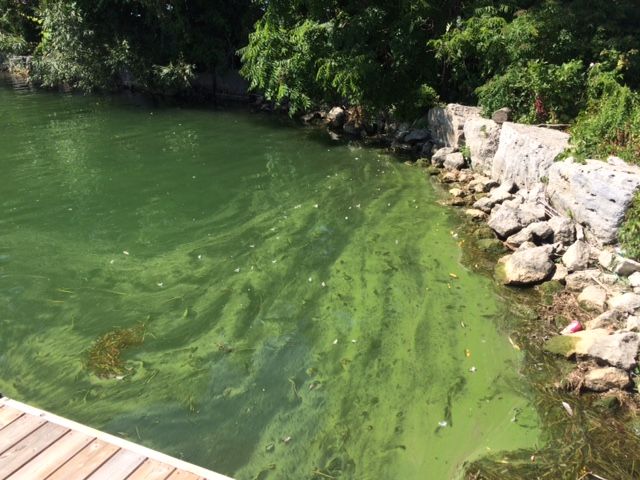Monitoring the Water at Halton's Beaches
Beach water monitoring results
During the summer months, the Halton Region Public Health monitors water quality at selected recreational beaches in Halton Region. This is done as part of the Region’s commitment to protect the safety, health and well-being of all Halton residents.
Beaches in Halton are selected for monitoring based on how often they are used for swimming and other water sports.
From June until September (Labour Day weekend), Halton public beaches are routinely sampled weekly or monthly (on Wednesdays). Due to the processing time of lab results, there is a delay in when the water is sampled and when results are received. Since water quality can change day-to-day, or even hour-to-hour depending on many factors, beach goers cannot rely only on lab results. Here are some factors beach goers need to take into consideration before swimming:
- Rain – Rain has a significant impact on water quality. Rain washes contaminants into streams, rivers and lakes, increasing the bacterial levels. We do not recommend swimming for 24-48 hours after heavy rainfalls.
- High winds – Winds can cause waves which stir up sand and silt, making the water cloudy. If the water appears cloudy (i.e. you can’t see your feet standing waist deep in the water), swimming is not recommended.
- Waterfowl – The presence of seagulls, geese, ducks, and their droppings can have a significant impact on water quality, increasing the bacterial levels.
- Shallow water – Warmer water temperatures in shallow water are more favourable for bacterial growth and may increase bacterial levels.
- Heavy algae growth or accumulation
- Visible debris, metal, or sharp objects in the water or beach area
Monitoring resumes in June 2026
Beach water monitoring frequently asked questions
Frequency of use for swimming and other water activities determines which beaches get selected for monitoring.
The Health Department monitors public beaches to protect swimmers from illnesses linked to unsafe water quality. Swimming in water with large amounts of algae or other debris can be a hazard. Swimming in water with high levels of bacteria can cause an increased risk of:
- Infection in ears, eyes, nose and throat.
- Gastrointestinal or stomach illnesses when water is swallowed.
- Swimming in water with excess algae or other debris can be a hazard.
- A minimum of five water samples per beach are collected once a week
- Samples are analyzed for E. coli bacteria by the Provincial Public Health Laboratory. The results of the water samples indicate the quality of the beach water at the time the beach was sampled.
- During sampling algae growth is monitored by visual observation of the water
A beach is considered unsafe in situations that may include but are not limited to:
- Average level of E. coli greater than the Ministry guideline of 200 E. coli/100mL of water, or a single sample of E. coli higher than the Ministry guideline of 400 E. coli/100mL of water;
- Chemical, oil, sewage or other waste spill;
- Waste water treatment plant bypass (unintentional or controlled);
- Blue-green algae bloom (confirmed by visual observation or laboratory test);
- Heavy algae growth or accumulation other than blue-green algae;
- Fish or other wildlife die-off at the beach; or
- Visible debris, metal, or sharp objects in the water or beach area
To alert bathers to the potential of a higher than normal risk of infection, a warning sign is posted by the Local Municipality advising the users that the water may be unsafe for swimming. Postings are removed once sample results indicate the levels of bacteria are within acceptable limits.
- Seasonal and storm surface run-off into rivers and lakes
- Pet waste run-off
- Large populations of waterfowl (geese, seagulls, etc.)
- Warm water temperatures
- Malfunctioning private sewage disposal systems
- Boating wastes
- Agricultural manure run-off
You can do your part to keep Halton beaches clean by:
- not feeding animals or birds
- observing local "stoop and scoop" by-laws and always pick up your pets waste
- practicing pollution-free boating and disposing of human waste appropriately
- keeping your private sewage disposal system in good working order
Check for weekly sampling results by visiting Halton's Beach Water Monitoring Results or call us directly at:
- 311
- 905-825-6000
- TTY 905-827-9833
- toll free 1-866-4HALTON (1-866-442-5866)

Blue-green algae

